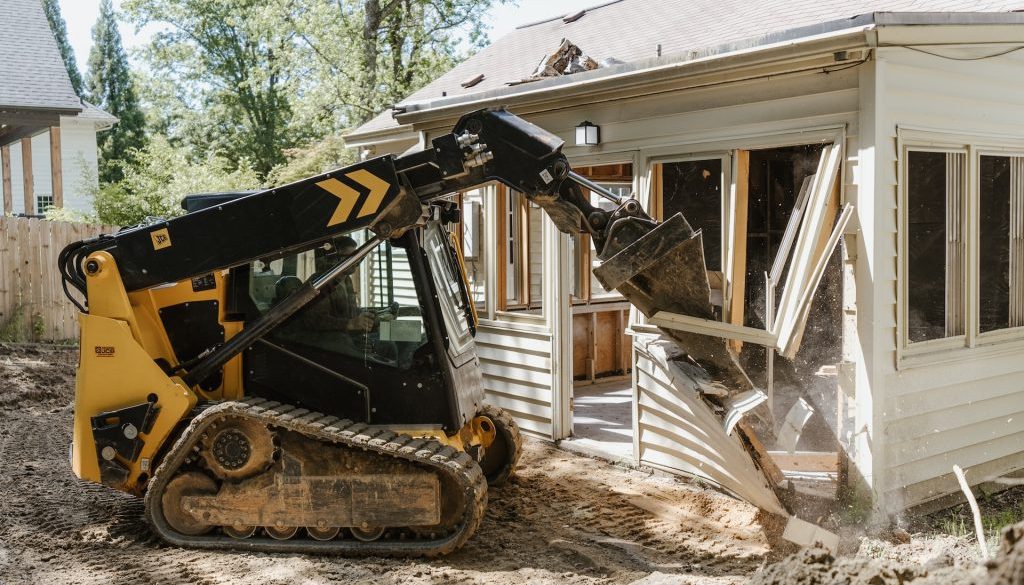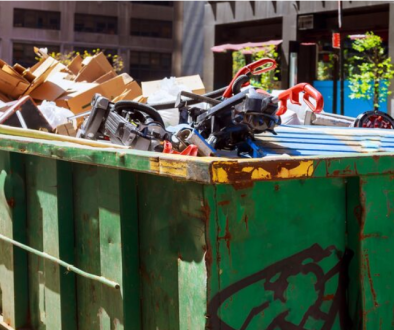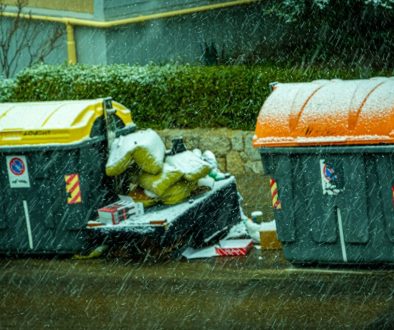Construction and demolition projects are indispensable to urban development and infrastructural growth, yet they pose significant waste management challenges that require diligent attention and environmentally responsible solutions. In this blog post, we will delve into the best practices for managing construction and demolition waste, emphasizing the importance of efficient waste disposal, recycling, and compliance with environmental regulations. Additionally, we will discuss how partnering with a professional waste management service like Enviro Skip Hire can contribute to a successful and sustainable construction project.
Construction and demolition waste comprises various materials, including concrete, bricks, timber, metals, plastics, and soil, each requiring appropriate disposal or recycling methods. Managing this waste stream effectively is crucial to maintain environmental sustainability, adhere to legal disposal guidelines, and promote a circular economy in the construction sector. In doing so, builders mitigate the environmental impact of their projects, conserve natural resources, reduce landfill waste, and bolster their reputation as responsible professionals.
Key elements of an effective construction and demolition waste management strategy include assessing the volume and type of waste generated, developing a comprehensive waste management plan, collaborating with professional waste disposal services like Enviro Skip Hire, and promoting recycling and reuse of materials.
In the following sections, we will explore these aspects in detail, discussing the benefits of implementing such waste management practices, highlighting the role of professional skip hire and waste disposal services, and providing practical advice on navigating waste disposal regulations and guidelines.
Understanding Construction and Demolition Waste Management Best Practices
1. Assessing Waste Generated
The first step towards effective waste management is assessing the volume and type of waste generated by a construction or demolition project. This step is crucial for planning resource allocation, selecting appropriate disposal methods, and estimating costs. Conducting a thorough assessment involves:
– Identifying Waste Types: Categorise waste materials based on type, e.g., concrete, wood, or metal. This classification will help determine appropriate disposal techniques and potential recycling or reuse opportunities.
– Estimating Waste Volumes: Estimate the total volume of waste produced by the project to select the right skip size and plan disposal frequency, ensuring efficiency and cost-effectiveness.
– Planning for Hazardous Waste: Account for hazardous waste materials such as asbestos, lead, or chemicals, which require special handling and disposal according to environmental regulations.
2. Developing a Waste Management Plan
A comprehensive waste management plan is an essential tool for guiding waste disposal, recycling, and resource allocation throughout a construction or demolition project. Key components of an effective waste management plan include:
– Waste Reduction Goals: Clearly define waste reduction targets, such as diverting a certain percentage of waste from landfills or recycling a specific volume of materials.
– Disposal and Recycling Strategies: Outline the disposal methods and recycling processes for various waste types, including plans for segregating waste on-site and coordinating with recycling facilities.
– Responsibilities and Timelines: Assign waste management tasks to specific team members, set deadlines, and create schedules for waste collection and disposal activities.
3. Collaborating with Professional Waste Disposal Services
Partnering with a reliable waste disposal service like Enviro Skip Hire ensures the proper handling of construction and demolition waste, in full compliance with environmental regulations, and contributes to the project’s overall success. Benefits of collaborating with professional waste disposal services include:
– Efficient Waste Collection: Professional skip hire and waste disposal services offer timely and efficient collection of waste, ensuring a clean and organised worksite.
– Compliance Assistance: Expert support in managing and disposing of waste materials in adherence to environmental regulations, preventing potential legal complications.
– Customised Solutions: Tailored waste management solutions catered to a project’s specific needs, such as skip size options or specialised handling for hazardous waste.
– Recycling Support: Assistance in coordinating recycling and resource recovery efforts, maximising the diversion of waste from landfills and supporting a circular economy in construction.
4. Recycling and Material Reuse
Promoting recycling and material reuse is a crucial component of sustainable waste management practices for construction and demolition projects. Doing so not only benefits the environment but can also offer cost savings. Strategies for recycling and material reuse include:
– Source Separation: Segregate waste materials on-site based on type to streamline recycling processes and improve material recovery rates.
– Resource Recovery: Repurpose or recycle materials such as concrete, bricks, timber, and metals, conserving natural resources and reducing waste sent to landfills.
– Collaborating with Recycling Facilities: Coordinate with local recycling centres to ensure the recycling and recovery of construction and demolition waste materials.
– Encouraging Sustainable Construction: Foster eco-friendly construction practices, such as sourcing recycled or reclaimed materials, to minimise waste generation from the outset.
Conclusion
Adopting best practices in managing construction and demolition waste is vital for promoting environmental sustainability, adhering to legal disposal guidelines, and ensuring a successful and responsible project outcome. By assessing waste generation, developing a thorough waste management plan, collaborating with professional waste disposal services like Enviro Skip Hire, and fostering recycling and material reuse, builders can significantly mitigate the environmental impact of their projects, conserve natural resources, and enhance their reputation as responsible professionals.
Embracing these waste management best practices not only contributes to a cleaner and more sustainable construction sector but can also yield cost savings and improve project efficiency. As the construction industry continues to grow, prioritising effective waste management strategies will remain an essential component in building a greener, more responsible future.




